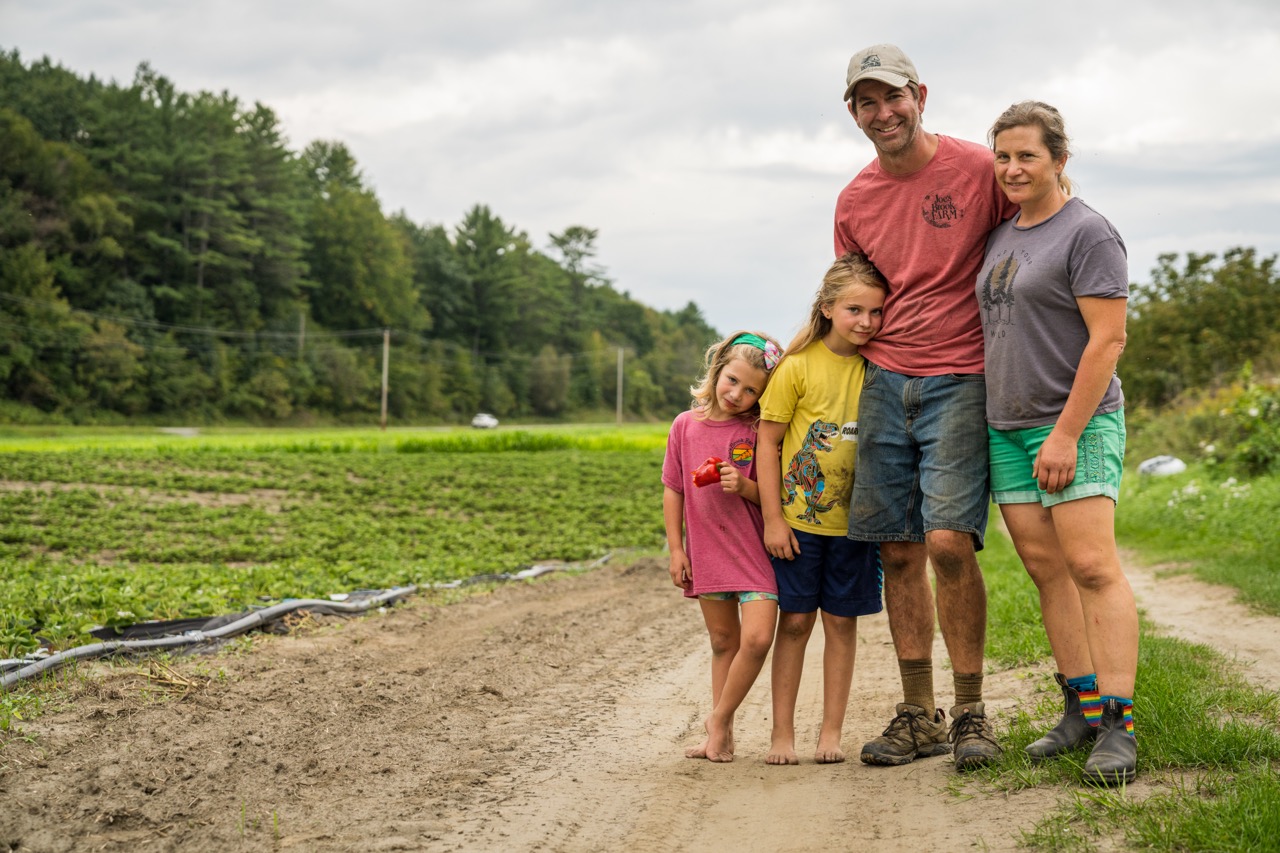Farming is a demanding job. So, even when millions of dollars in energy efficiency grants become available to farmers, many don't have the time or expertise to conduct energy assessments and write grant applications.
“We’ve known we needed to upgrade the refrigerators and the freezers in the farm stand for some time, and we've known about USDA Rural Development, but it is hard to access those grants,” Eric Skovsted said. Skovsted and his wife, Mary, own and operate Joe’s Brook Farm, a 15-acre certified organic vegetable farm in Barnet.
Rural Energy for America Program (REAP) Grants are available to assist small businesses or farms in Vermont and across the U.S. with energy efficiency improvements or renewable energy projects. Millions of dollars have been set aside, and agriculture producers can get up to 50 percent financial assistance for projects improving energy efficiency.
Fortunately, CEW specializes in energy efficiency and is interested in helping farms, like Joe’s Brook, get the grants they need to run their operations more efficiently.
“We thought, why don't we streamline and partner with the Working Lands Enterprise Initiative at the Vermont Agency of Agriculture to provide technical assistance to make it easy for farmers to execute the energy audits, and we write the grants for free,” said Todd Campbell, owner of Clean Economy Works.
The consulting firm provides strategic planning and project management for economic development projects. They received a $20,000 matching grant from the Working Lands Enterprise Initiative to work with eight farms in Vermont to identify projects and apply for REAP grants at no cost to the farmers. Stonyfield Organic also contributed $5,000.
Clean Economy Works obtained a REAP grant for Joe’s Brook Farm for three energy-efficient coolers and two freezers to be installed in the farm’s two historic barns where they store and sell their fresh produce. After the equipment is paid off in five years, the farm will save 60 percent or nearly $2,000 annually on electricity.
“It's doing three things. It's helping us reduce our carbon footprint, save money on our utilities, and also give our business an option to grow as it finds new markets,” Skovsted said of the benefits they expect from upgrading their aging refrigeration system.
Additional farms working with Clean Economy Works on energy efficiency projects and REAP grants include Miller Dairy Farm in Vernon, Bennett Family Farm Stand in St. Johnsbury, and Boyden Valley Wine & Spirits in Cambridge.
“These are the businesses we want to see succeed in our communities,” Senior Project Manager Pete Schweigert of Clean Economy Works said.
Schweigert says the Inflation Reduction Act of 2022 allocated unprecedented amounts of one-time funding to the REAP program, making this the ideal time for these projects.
“The grants might not be around for long. So, part of what we're doing is saying, let's try to get as much of this to regional farm and forestry businesses that we value while it's available,” Schweigert said. Campbell chimed in, “We’re making hay while the sun shines.”

